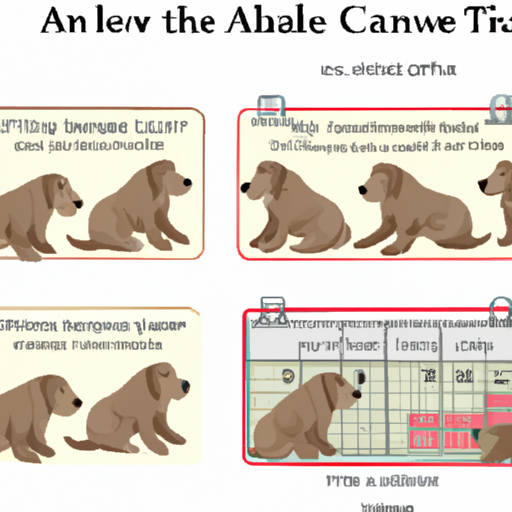Your Puppy’s First Year
The first year of your dog’s life is packed with rapid growth and development. Your little furball is still a puppy during this period, undergoing a series of significant changes.
- Birth to 8 weeks: This period is characterized by rapid physical development. Your puppy is learning to navigate its environment, understand its mother’s signals, and interact with other puppies.
- 8 weeks to 3 months: At this stage, your dog is more like a toddler. It’s the best time to start socializing your puppy.
- 3 to 6 months: Your puppy is in the juvenile stage now, losing its puppy coat and growing its adult coat. Also, this is when your puppy will start teething.
- 6 to 12 months: This is the adolescent stage. Your puppy may begin to challenge your authority around this time.
The Transition from Puppy to Adult
Your dog’s breed plays a significant role. Small breed dogs mature faster than large breed dogs. Generally, dogs are considered adults between one and two years old.
| Breed Size | Adult Age |
|---|---|
| Small breeds | 9 to 12 months |
| Medium breeds | 12 to 16 months |
| Large breeds | 12 to 18 months |
| Giant breeds | up to 24 months |
Physical Signs of Maturity
Look for these signs to know when your dog has transitioned from being a puppy:
- Fully Grown Teeth: Puppies lose their baby teeth and have a full set of adult teeth by the time they are six months old.
- Adult Coat: Puppies shed their fluffy coats and grow denser adult coats.
- Size: When your dog reaches about 75% of the expected adult size, it’s nearing adulthood.
Behavioral Changes
As your puppy matures, you’ll notice behavioral changes. These can include:
- Decreased hyperactivity: Adult dogs are less hyperactive and have fewer mood swings than puppies.
- Improved focus: Adult dogs can maintain focus for longer periods, making training easier.
Nutritional Needs Change
As your dog transitions from puppyhood, its nutritional needs change. Puppies need a diet rich in protein and fat for their rapid growth. Adult dogs need fewer calories and a balanced diet.
Importance of Regular Vet Check-Ups
Regular vet check-ups are crucial, especially during the transition from puppyhood to adulthood. The vet can provide valuable insights into your dog’s development and advice on diet and exercise.
Training and Socialization
Training should begin during puppyhood but continue into adulthood. Socialization is crucial at every stage of your dog’s life. As an adult, your dog will be more confident and better behaved if it’s well socialized.
FAQ’s
Q: When does my puppy become an adult?
A: It depends on the breed. Small breeds mature faster than large breeds, generally between 9 to 24 months.
Q: How can I tell if my dog is no longer a puppy?
A: Look for physical signs, like a full set of adult teeth and a mature coat. Behavioral changes, like decreased hyperactivity, can also indicate adulthood.
Q: How should I change my dog’s diet as it matures?
A: As your dog moves out of puppyhood, it needs fewer calories and a balanced diet. Consult your vet for specific nutritional advice.
Q: Is socialization still important after my dog becomes an adult?
A: Yes, socialization is crucial at all stages of your dog’s life. It helps your dog become a well-behaved, confident adult.
Remember, every dog is unique. This guide gives a general idea of when a dog stops being a puppy, but individual differences can vary. Your vet is your best resource for personalized advice.



